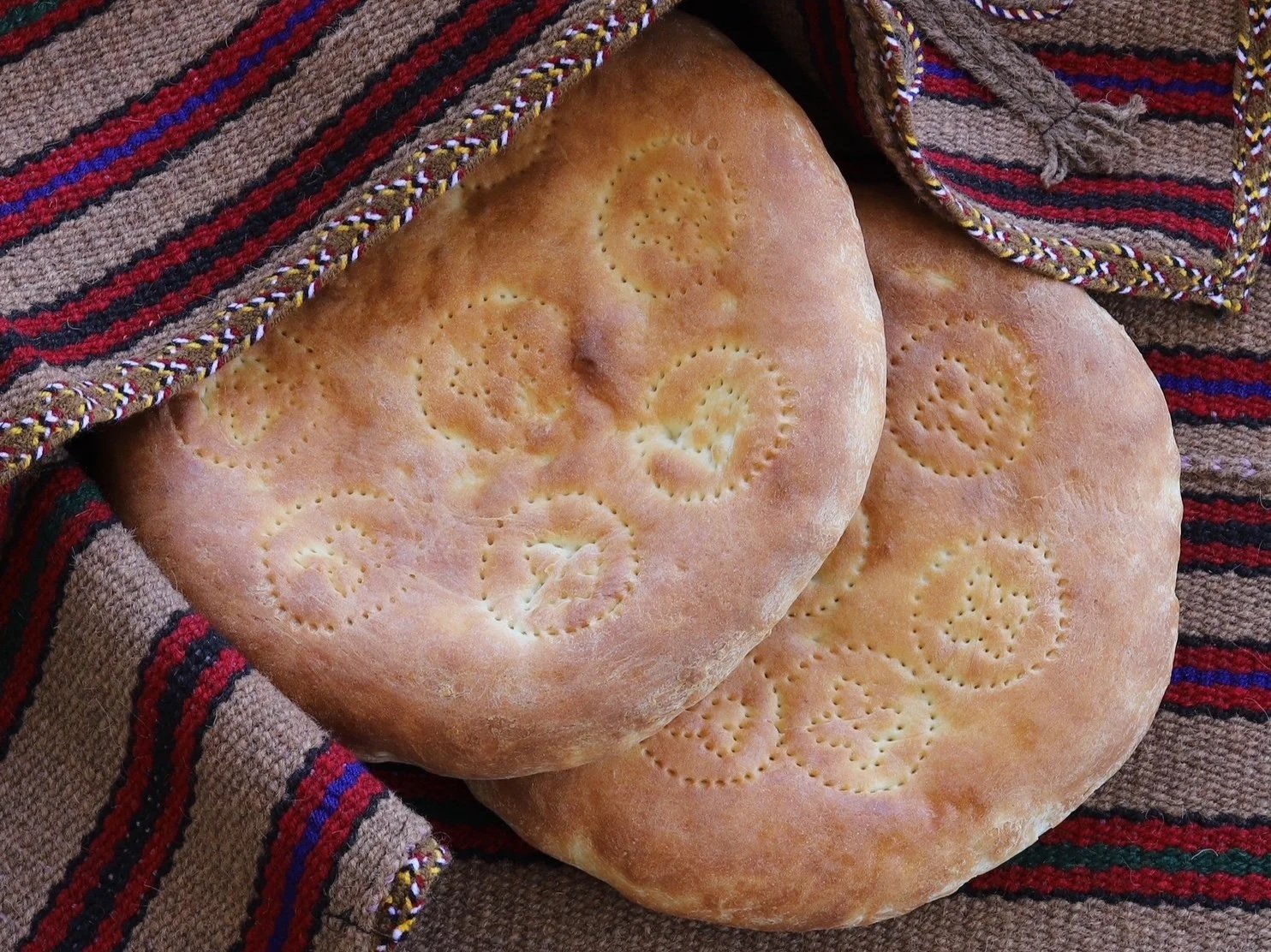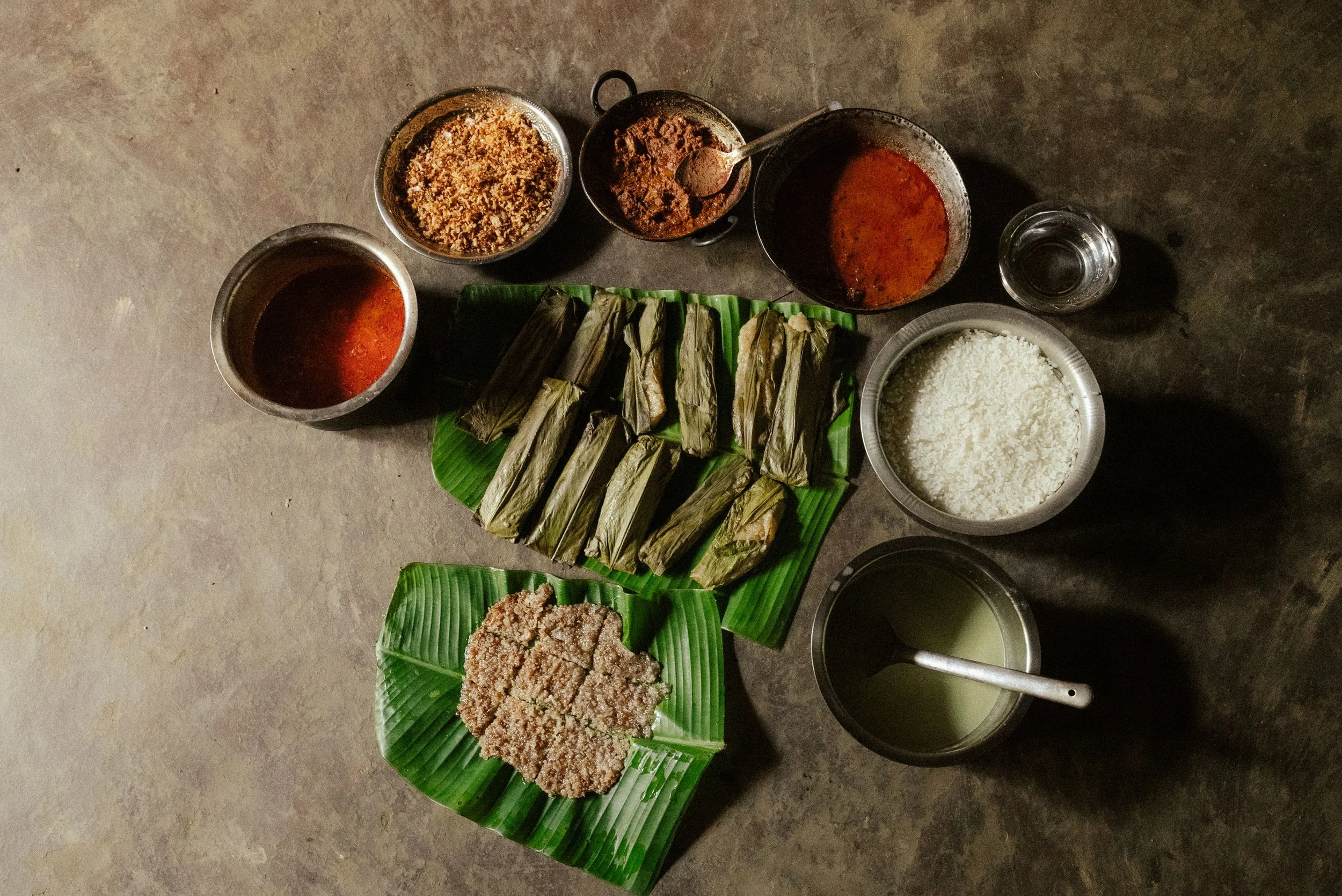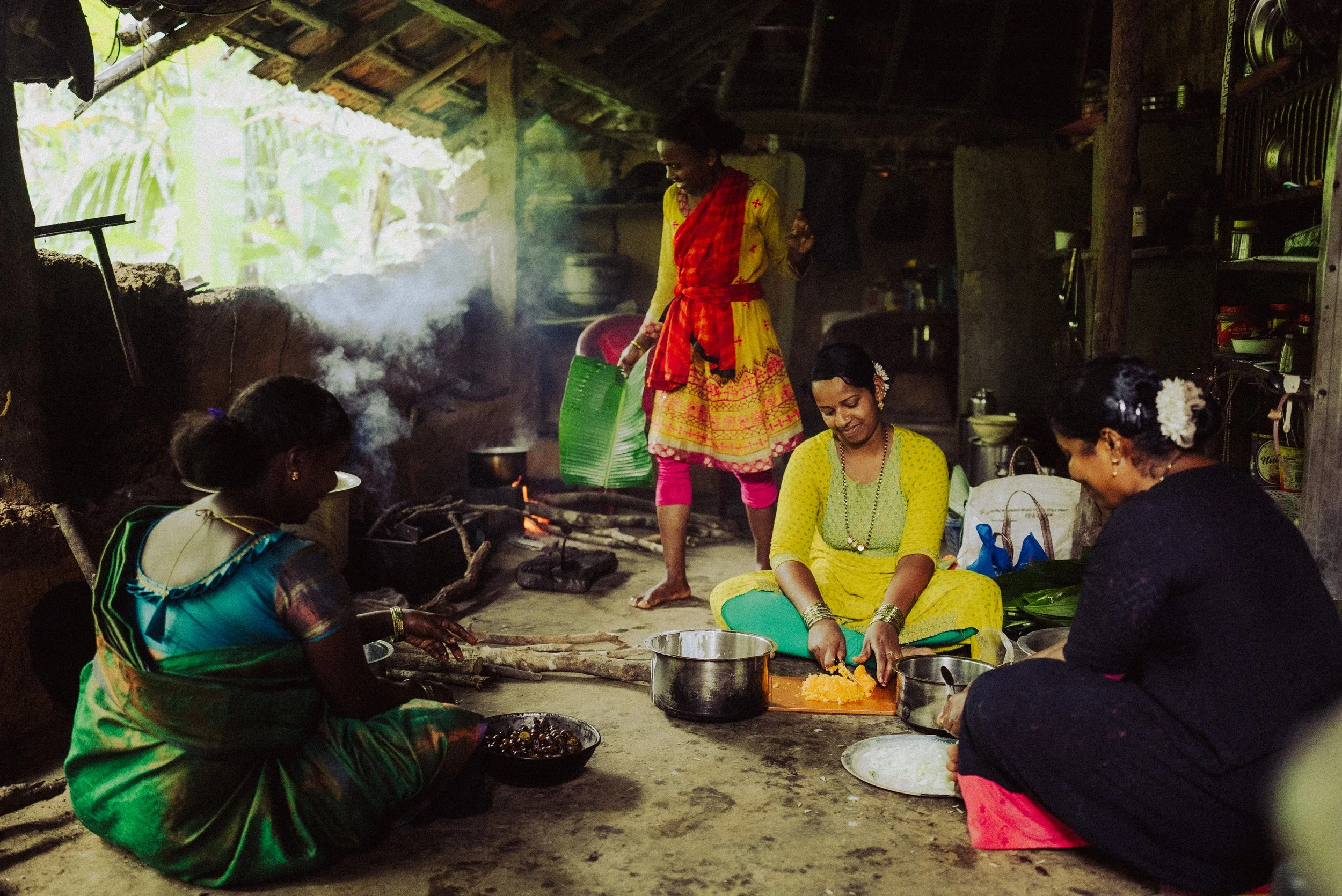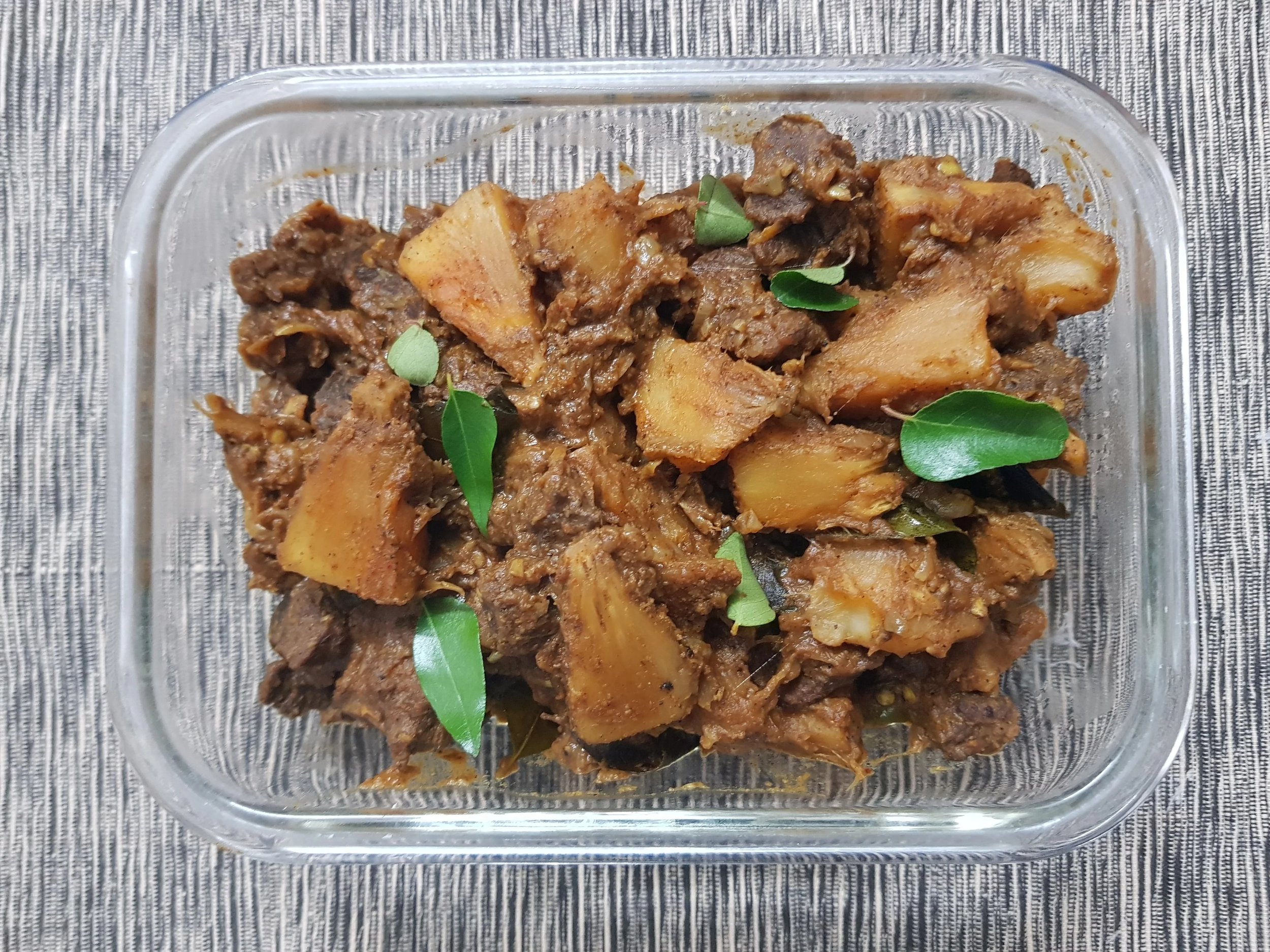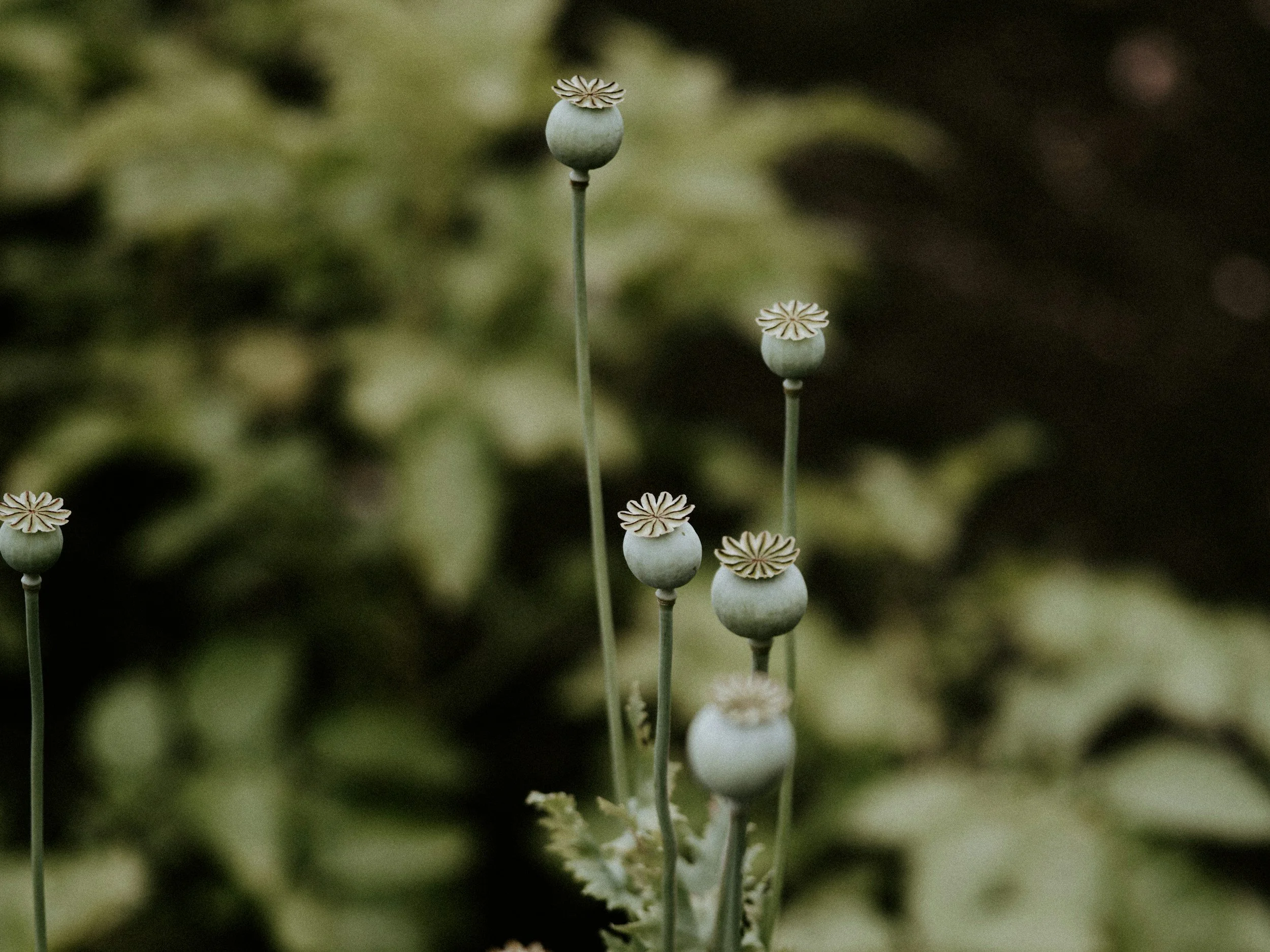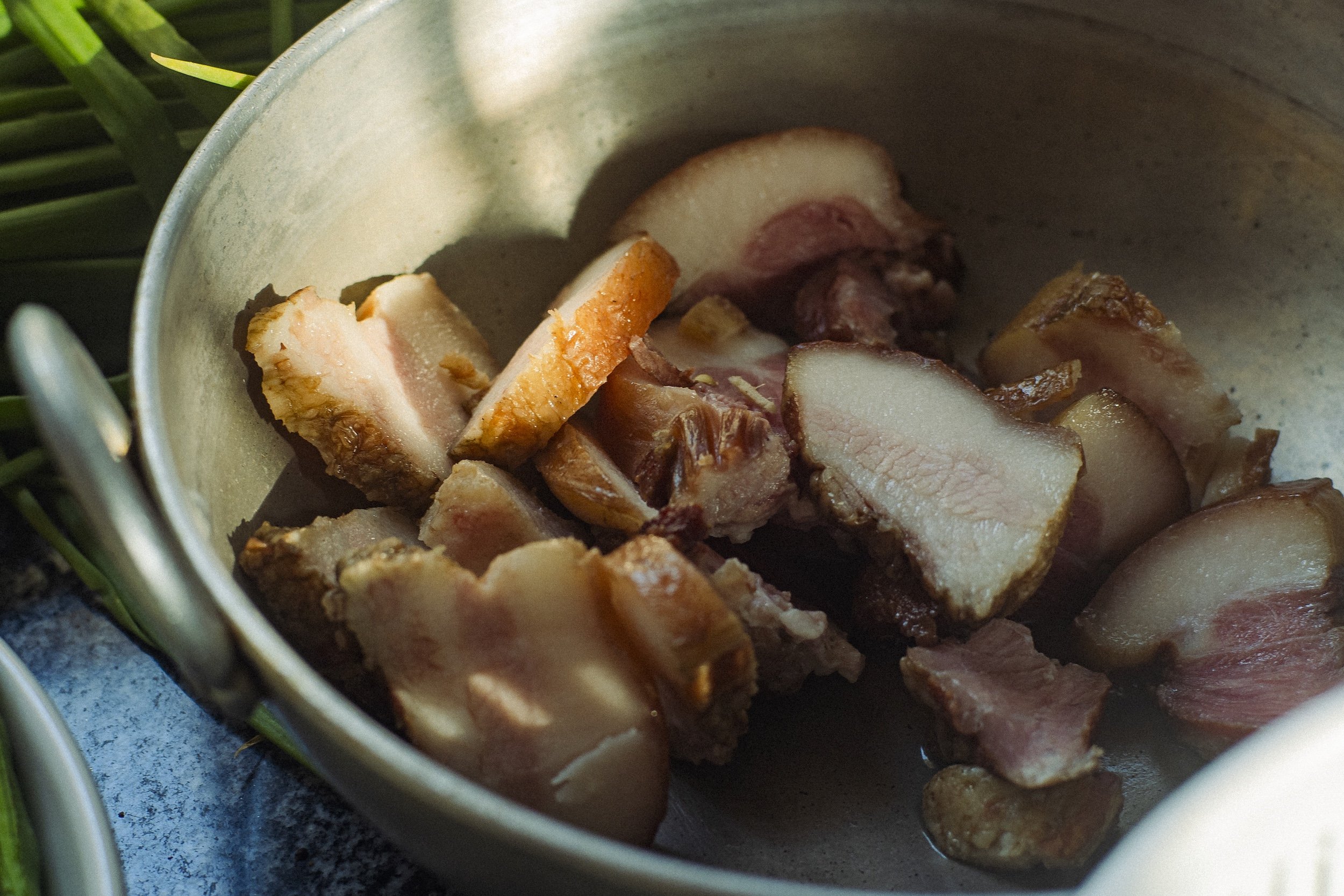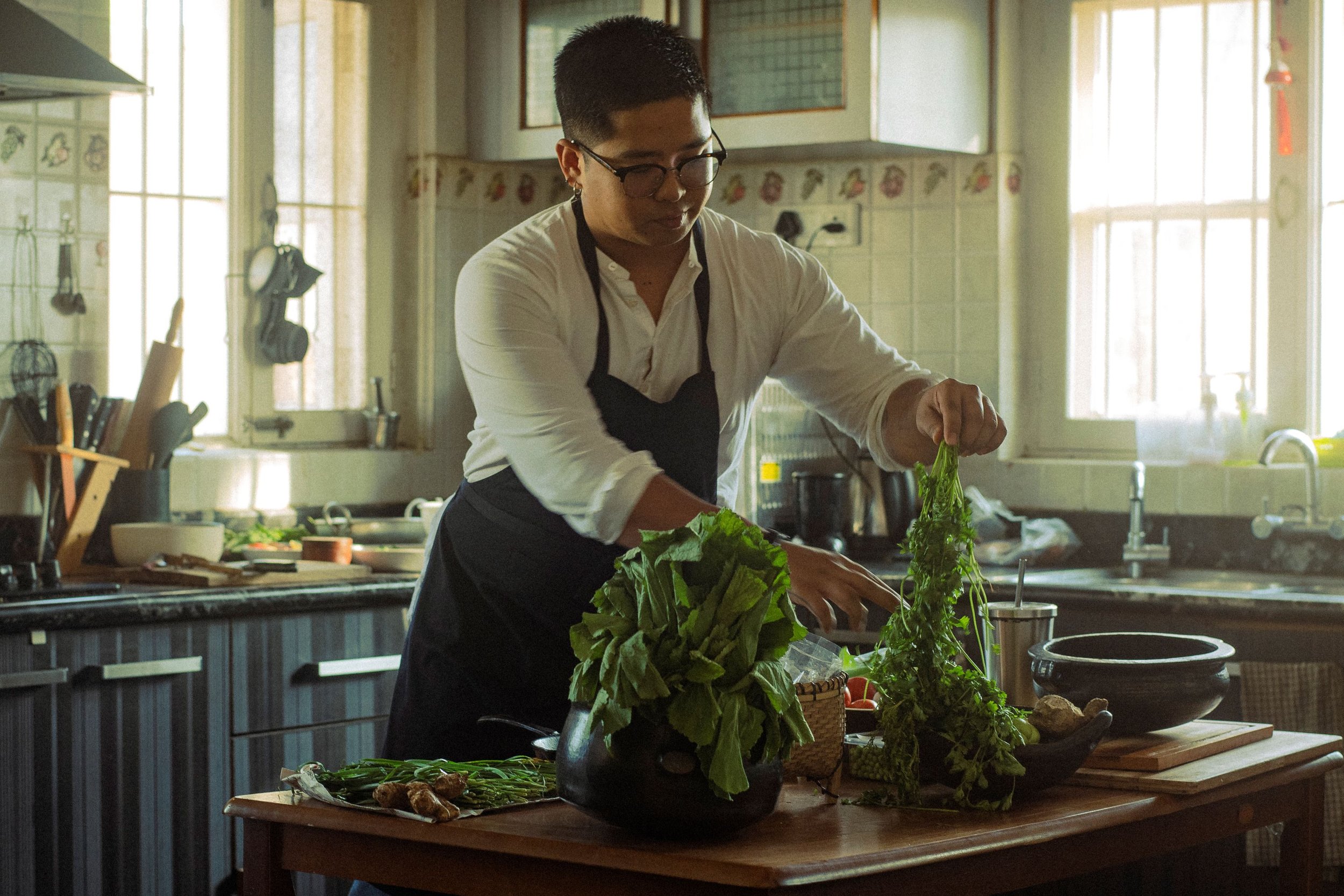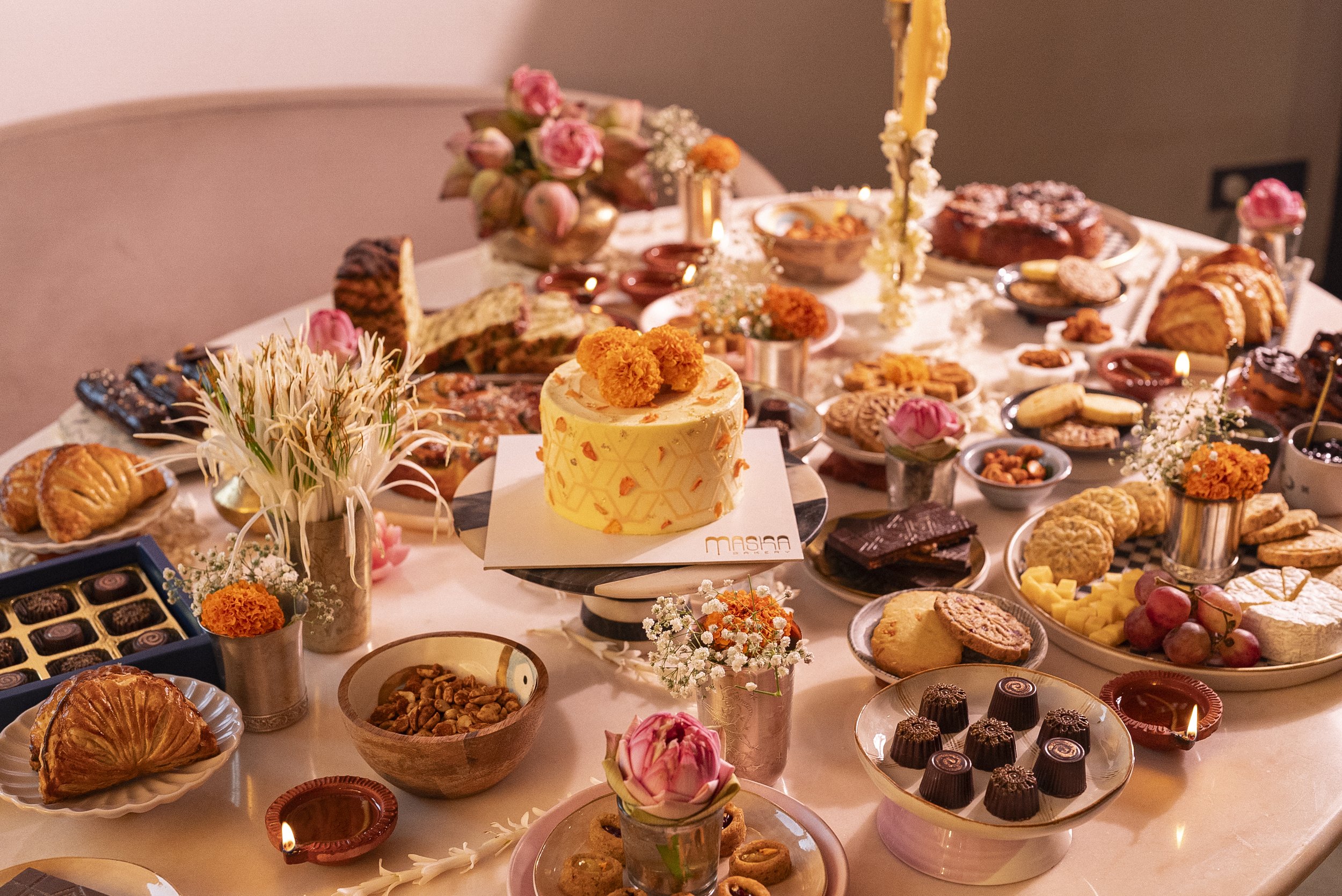Puthandu Mango Pachadi Means More than Happy New Year

Puthandu, or Tamil New Year celebrations, are inseparable from mango pachadi, and the deeper meaning this simple dish represents.
Rum-soaked plum cakes for Christmas, decadent mithai for Diwali, and meat-rich biryani on Eid, food has always been synonymous with festivities. And Puthandu is no different. Celebrated by the Tamil diaspora across the globe, Puthandu (புத்தாண்டு), the Tamil word for New Year, falls every year on the 14th day of April, according to the Gregorian calendar, and marks the beginning of the Tamil month Chithirai, the first day of the traditional Hindu Tamil calendar.
Similar to other markers of new beginnings, Puthandu is a day of hope and renewal, a day to set intentions. Celebrated without the fervour of Deepavalli or the glamour of the ‘English’ New Year, Puthandu New Year is a quiet family affair. The day begins with an intimate pooja at home, as everyone marks the fresh start of the year with new clothes, followed by an elaborate lunch.
Every family has its own favourite recipes for Puthandu – and with globalizing food culture, it isn’t surprising for paneer butter masala to be found alongside the sambar-rice army. Despite this amalgamation of food and rituals, there is one recipe that makes an uncompromising appearance at every Puthandu table across the world – mango pachadi.
Midway between a pickle and a gravy, mango pachadi is made from sour raw mangoes, and represents traditional New Year wishes. To understand why the humble mango pachadi plays such a significant role at the Puthandun table, it is important to first look closer at the ingredients that go in: Sour raw mangoes, sweet jaggery, bitter neem leaves, spicy red chillies, and pungent asafoetida, are the main components of mango pachadi. A symphony of flavours, layered to complement one another, each bite is a tiny explosion of flavour in your mouth. (Every new year needs its fireworks!)
The marrying of these flavours is no accident. In fact, the addition of bitter neem leaves is what makes Puthandu mango pachadi different from its everyday counterpart. Mango pachadi is representative of a deeper message: each flavour is chosen to represent the different trials and tribulations (or flavours, if you will) of life. It is a reminder to be open-minded to every experience the coming year has in store; to fully experience every sweet, bitter, sour or tart feeling. To feed someone Puthandu pachadi is to wish them a year full of full living. It is a hope that no feeling is independent or ephemeral; to embrace both sweet and bitter moments, remembering that these experiences shape our lives.
And just like no flavour can be omitted from the mango pachadi without compromising its taste, every experience of the upcoming year is essential for a life that is as flavourful and delicious as a simple bowl of mango pachadi.
RECIPE FOR PUTHANDU MANGO PACHADI
Ingredients
1 and a 1/2 raw mango (chopped)
1 tbsp chilli powder
A pinch of turmeric
A pinch of salt
1/2 cup jaggery
1 small onion (chopped)
For tempering
1 tbsp vegetable oil
1 tsp mustard seed
3-4 dried red chilli
A pinch of hing
A few neem leaves
Method
Boil the raw mango with salt until softened
Separately, filter the jaggery in hot water to remove any sediments
Add the jaggery to the boiled mangoes, along with the remaining ingredients
Allow to cook for a few minutes on low heat, until well combined
In a separate saucepan, prepare the tempering
Heat the oil until, turn down the flame and add in the ingredients in quick succession, beginning with mustard seeds
Pour the tempering over the boiled mangoes
Stir to combine
Best paired with steamed rice
Note: You can choose to peel the skin off the mangoes, or keep it on partially. If you do keep the skin on, cooking time will vary by 1-2 minutes. Both versions are equally delicious!
Banner image credit Niru
Suganya Lakshmi is a Bangalore-based writer with an interest in food, fashion & fiction. Her work has appeared in national & international publications including LMD Lanka, The Sundial Journal & The Hindu.
ALSO ON THE GOYA JOURNAL


